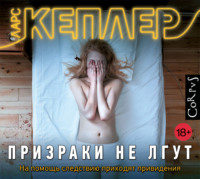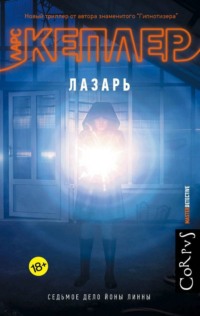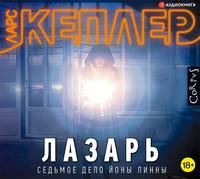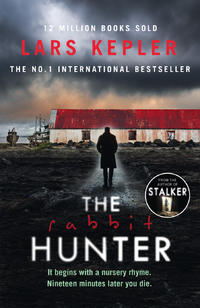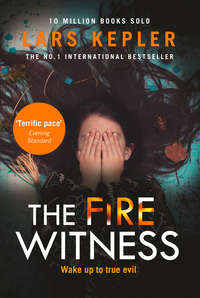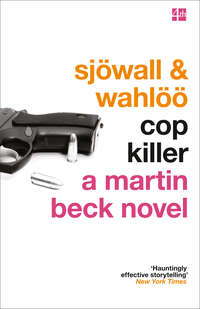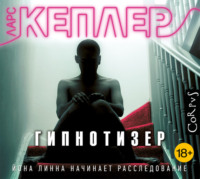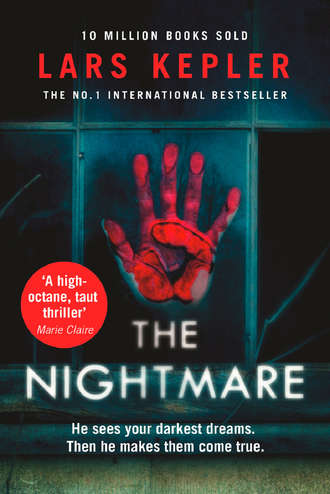
Полная версия
The Nightmare
The man in the suede jacket has pulled out the red petrol can the boys had hidden among the bushes behind the shack, and is emptying it around the shack. Only when he reaches the back wall does he hear the first shouts from inside. The boy is banging on the door, trying to push it open. His footsteps thud across the floor, and his worried face appears at one of the dirty windows.
‘Open the door, this isn’t funny,’ he shouts loudly.
The man in the suede jacket carries on around the shack, empties the last of the petrol, then puts the can down.
‘What are you doing?’ the boy cries.
He throws himself at the door, trying to kick it open, but it won’t budge. He calls his mum, but her phone is switched off. His heart is beating hard as he tries to look through the grey-streaked windows, moving from one to the other.
‘Are you mad?’
When he suddenly notices the acrid smell of petrol, fear rises up inside him and his stomach clenches.
‘Hello?’ he shouts in a frightened voice. ‘I know you’re still there!’
The man pulls a box of matches from his pocket.
‘What do you want? Please, just tell me what you want …’
‘It isn’t your fault, but a nightmare needs to be reaped,’ the man says without raising his voice, and lights a match.
‘Let me out!’ the boy screams.
The man drops the match in the wet grass. There’s a sucking sound, like a big sail suddenly filling with air. Pale blue flames fly up with such ferocity that the man is forced to take several steps back. The boy cries for help. The flames spread to surround the shack. The man keeps backing away as he feels the heat on his face and hears the terrified screams.
The shack is ablaze in a matter of seconds, and the glass shatters behind the bars in the heat.
The boy shrieks when the flames set light to his hair.
The man walks across the railway lines, stands beside the industrial building and watches as the old shack burns like a torch.
A few minutes later a goods train approaches from the north. It comes rolling slowly down the track, and with a scraping, rattling sound the row of brown wagons passes the dancing flames as the man in the suede jacket vanishes along Stenbygatan.
23
Forensics
Even though it’s the weekend the head of the National Crime Unit, Carlos Eliasson, is in his office. His gradually increasing introversion means that he’s becoming more and more averse to spontaneous visits. The door is closed and he’s got the ‘engaged’ light on. Joona knocks and opens the door in the same gesture.
‘I need to know if the marine police find anything,’ he says.
Carlos puts his book down on the desk and replies calmly:
‘You and Erixon were attacked. That’s a traumatic experience and you need to look after yourselves.’
‘We will,’ Joona says.
‘The helicopter search has been concluded.’
Joona stiffens.
‘Concluded? How large an area did …’
‘I don’t know,’ Carlos interrupts.
‘Who’s in charge of the operation?’
‘It’s nothing to do with National Crime,’ Carlos explains. ‘The marine police are …’
‘But it would be very useful to us to know if we’re investigating one or three murders,’ Joona says sharply.
‘Joona, right now you’re not investigating anything. I’ve discussed the matter with Jens Svanehjälm. We’re putting together a joint team with the Security Police. Petter Näslund will represent National Crime, Tommy Kofoed the National Homicide Commission, and …’
‘What’s my role?’
‘Take a week off.’
‘No.’
‘Then you can go out to Police Academy and give some lectures.’
‘No.’
‘Don’t be stubborn,’ Carlos says. ‘That obstinacy of yours isn’t as charming as …’
‘I don’t give a damn what you think,’ Joona says. ‘Penelope …’
‘You don’t give a damn about me,’ Carlos says in astonishment. ‘I’m head of …’
‘Penelope Fernandez and Björn Almskog could still be alive,’ Joona goes on in a hard voice. ‘His flat has been burned out and hers would have been if I hadn’t got there in time. I think the murderer is looking for something that they’ve got, I think he tried to get Viola to talk before he drowned her …’
‘Thank you very much,’ Carlos interrupts, raising his voice. ‘Thank you for your interesting ideas, but we’ve … No, let me finish. I know you have trouble accepting this, Joona, but you’re not the only police officer in the country. And most of the others are actually very good, you know.’
‘Agreed,’ Joona says slowly, with a degree of sharpness in his voice. ‘And you ought to take care of them, Carlos.’
Joona looks at the brown stains on his cuffs made by Erixon’s blood.
‘What do you mean?’
‘I’ve encountered the perpetrator, and I think we need to be prepared for police fatalities in this case.’
‘You were taken by surprise, I understand it was unpleasant …’
‘Okay,’ Joona says harshly.
‘Tommy Kofoed is in charge of the crime scene investigation, and I’ll call Britta at Police Academy and tell her you’ll be calling in today, and will be a guest-lecturer next week,’ Carlos says.
The heat hits Joona when he emerges from Police Headquarters. As he takes his jacket off he realises that someone is approaching him from behind, stepping out between the parked cars in the street from the shadows of the park. He turns round and sees that it’s Penelope’s mother, Claudia Fernandez.
‘Joona Linna,’ she says in a tense voice.
‘Claudia, how are you?’ he asks seriously.
She just shakes her head. Her eyes are bloodshot and her face looks anguished.
‘Find her, you have to find my little girl,’ she says, and hands him a thick envelope.
Joona opens the envelope and sees that it’s full of banknotes. He tries to give it back, but she won’t take it.
‘Please, take the money. It’s all I’ve got,’ she says. ‘But I can get more, I’ll sell the house, as long as you find her.’
‘Claudia, I can’t take your money,’ he says.
Her tormented face crumples:
‘Please …’
‘We’re already doing everything we can.’
Joona gives the envelope back to Claudia, and she holds it stiffly in her hand, then mumbles that she’ll go home and wait by the phone. Then she stops him and tries to explain again:
‘I told her not to come to mine … she’s never going to call me.’
‘You had an argument, Claudia, but that’s not the end of the world.’
‘But how could I say that? Can you imagine?’ she asks, and raps her knuckles against her forehead. ‘Who says a thing like that to their own child?’
‘It’s so easy to just …’
Joona’s voice tails off, he feels his back sweating and forces himself to suppress the fragments of memory that are starting to stir.
‘I can’t bear it,’ Claudia says quietly.
Joona takes hold of Claudia’s hands, and tells her he’s doing all he can.
‘You have to get my daughter back,’ she whispers.
He nods, and they go their separate ways. Joona hurries down Bergsgatan, and peers up at the sky as he walks to his car. It’s sunny but a little hazy, and still very close. Last summer he was sitting in the hospital holding his mother’s hand. As usual, they spoke Finnish to each other. He told her they’d go to Karelia together as soon as she felt better. She was born there, in a little village which, unlike so many others, wasn’t burned down by the Russians during the Second World War. His mum had said it would be better if he went to Karelia with one of the people who were waiting for him.
Joona buys a bottle of Pellegrino from Il Caffè and drinks it before getting in the warm car. The steering wheel is hot and the seat burns his back. Instead of driving to Police Academy, he drives back to Sankt Paulsgatan 3, the flat of the missing Penelope Fernandez. He thinks about the man he encountered in the flat. There had been a remarkable speed and precision to his movements, as if the knife itself had been alive.
Blue and white tape has been strung up across the door, with the words ‘Police’ and ‘No entry’ on it.
Joona shows his ID to the uniformed officer on guard, and shakes his hand. They’ve met before, but never worked together.
‘Hot today,’ Joona says.
‘Just a bit,’ the police officer says.
‘How many forensics people have we got here?’ he asks, nodding towards the stairwell.
‘One of ours and three from the Security Police,’ the officer says brightly. ‘They want to get hold of DNA as quickly as possible.’
‘They won’t find any,’ Joona says, almost to himself as he starts to walk towards the stairs.
An older police officer, Melker Janos, is standing outside the door to the flat on the third floor. Joona remembers him from his training as a stressed and unpleasant senior officer. Back then Melker’s career was on the up, but an acrimonious divorce and sporadic alcohol abuse gradually saw him demoted to a beat officer again. When he sees Joona he greets him curtly and irritably, then opens the door for him with a sarcastic servile gesture.
‘Thanks,’ Joona says, without expecting any response.
Inside the door he finds Tommy Kofoed, the forensics coordinator from the National Homicide Commission. Kofoed is scuttling about sullenly. He reaches no higher than Joona’s chest. When their eyes meet he opens his mouth in an almost childishly happy grin.
‘Joona, great to see you. I thought you were going off to Police Academy.’
‘I got the directions wrong.’
‘Good.’
‘Have you found anything?’ Joona asks.
‘We’re secured all the shoeprints from the hall,’ he says.
‘Yes, they probably match my shoes,’ Joona says as he shakes Kofoed’s hand.
‘And the attacker’s,’ Kofoed says with an even broader smile. ‘We’ve got four prints. He moved in a bloody weird way, didn’t he?’
‘Yes,’ Joona replies curtly.
There are protective mats laid out in the hall so that any evidence isn’t contaminated before it’s been secured. There’s a camera on a stand with its lens pointing at the floor. A sturdy lamp with an aluminium shade is lying in the corner with its cord wrapped round it. The forensics team have looked for invisible shoeprints by shining light almost parallel to the floor. Then they’ve secured the prints electrostatically and identified the perpetrator’s steps through the hall from the kitchen.
Joona can’t help thinking that their precision is a waste of effort, seeing as the attacker’s shoes, gloves and clothes have almost certainly already been destroyed and burned.
‘How exactly did he run through here?’ Kofoed asks, pointing at the marks. ‘There, there … and then across to there, then there’s nothing until here and here.’
‘You’ve missed one,’ Joona smiles.
‘Like hell we have.’
‘There,’ Joona points.
‘Where?’
‘On the wall.’
‘Bloody hell.’
Some seventy centimetres above the floor there’s a faint shoeprint on the pale grey wallpaper. Tommy Kofoed calls one of his colleagues and asks him to take a gelatine print.
‘Is it okay to walk on the floor now?’ Joona asks.
‘As long as you don’t walk on the walls,’ Kofoed grunts.
24
The object
In the kitchen stands a man in jeans and a pale brown blazer with leather patches on the elbows. He strokes his blond moustache as he talks loudly and points at the microwave oven. Joona walks in and watches as a forensics officer in a protective mask and gloves packs the buckled aerosol can in a paper bag, folds it over twice, then tapes and labels the bag.
‘You’re Joona Linna, aren’t you?’ the man with the blond moustache says. ‘If you’re as good as everyone says, you ought to come over to us.’
They shake hands.
‘Göran Stone, Security Police,’ the man says proudly.
‘Are you in charge of the preliminary investigation?’
‘Yes, I am … well, formally Saga Bauer is – for the sake of the statistics,’ he grins.
‘I’ve met Saga Bauer,’ Joona says. ‘She seems capable of …’
‘Doesn’t she just?’ Göran Stone says, then bursts out laughing before covering his mouth.
Joona looks out of the window, thinking about the boat that was found adrift, and trying to figure out who the murderer had been tasked with liquidating. He is aware that the investigation is at far too early a stage to be able to draw any conclusions, but at the same time it’s always useful to consider different hypotheses. The only person the perpetrator was almost certainly after was Penelope, Joona thinks. And the only person he probably didn’t mean to kill was Viola, seeing as he couldn’t have known that she was going to be on the boat – her presence was the result of an unfortunate quirk of fate, Joona tells himself as he leaves the kitchen and walks over to the bedroom.
The bed is neatly made, the cream-coloured bedspread smooth. Saga Bauer from the Security Police is standing in front of a laptop that she’s placed on the windowsill as she talks on her phone. Joona remembers her from a seminar about counter-terrorism.
Joona sits down on the bed and tries to gather his thoughts again. He imagines Viola and Penelope standing in front of him, then puts Penelope’s boyfriend Björn next to them. They can’t all have been on the boat when Viola was murdered, he tells himself. Because then the perpetrator wouldn’t have made his mistake. If he had got on board when they were out at sea he would have murdered all three, put them on the right beds and sunk the boat. So his mistake means that Penelope can’t have been on the boat. Which means that they must have moored somewhere.
Joona gets up again, leaves the bedroom and walks into the living room. He looks at the wall-mounted television, the red sofa, the modern table with piles of left-wing magazines and newspapers. He walks over to the bookcase covering a whole wall, stops, and thinks about the pinched cables in the machine room which would have arced within a matter of minutes, igniting the cushion which had been stuffed next to the pipe from the fuel tank. But the boat didn’t sink. The engine can’t have been running for long enough.
There’s no such thing as coincidence any more.
Björn’s flat was destroyed by fire, Viola was murdered the same day, and if the boat hadn’t been abandoned the fuel tank would have exploded.
Then the murderer attempted to set off a gas explosion in Penelope’s flat.
Конец ознакомительного фрагмента.
Текст предоставлен ООО «ЛитРес».
Прочитайте эту книгу целиком, купив полную легальную версию на ЛитРес.
Безопасно оплатить книгу можно банковской картой Visa, MasterCard, Maestro, со счета мобильного телефона, с платежного терминала, в салоне МТС или Связной, через PayPal, WebMoney, Яндекс.Деньги, QIWI Кошелек, бонусными картами или другим удобным Вам способом.



